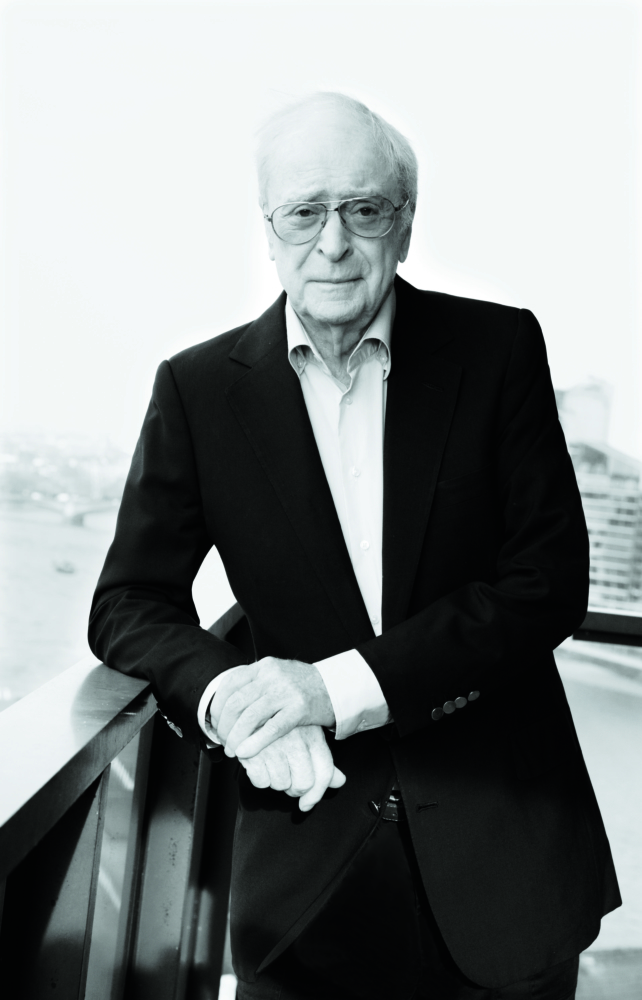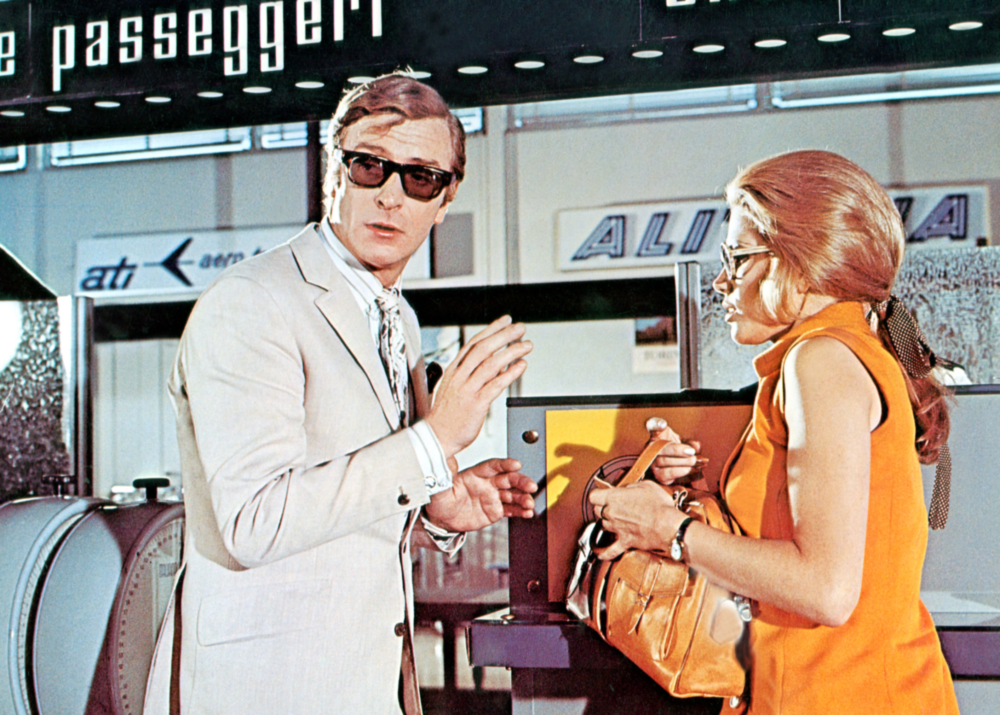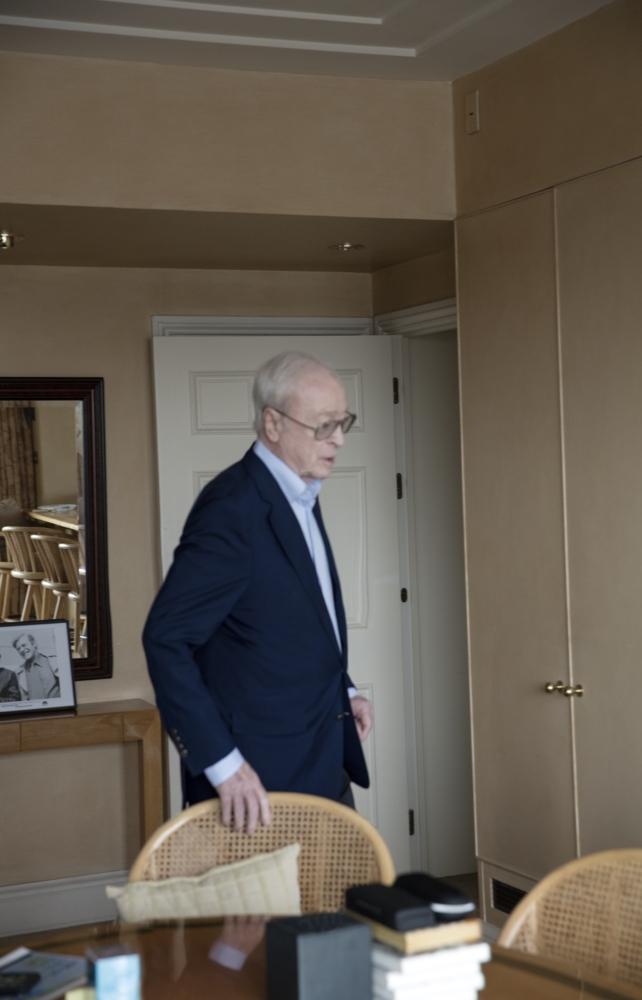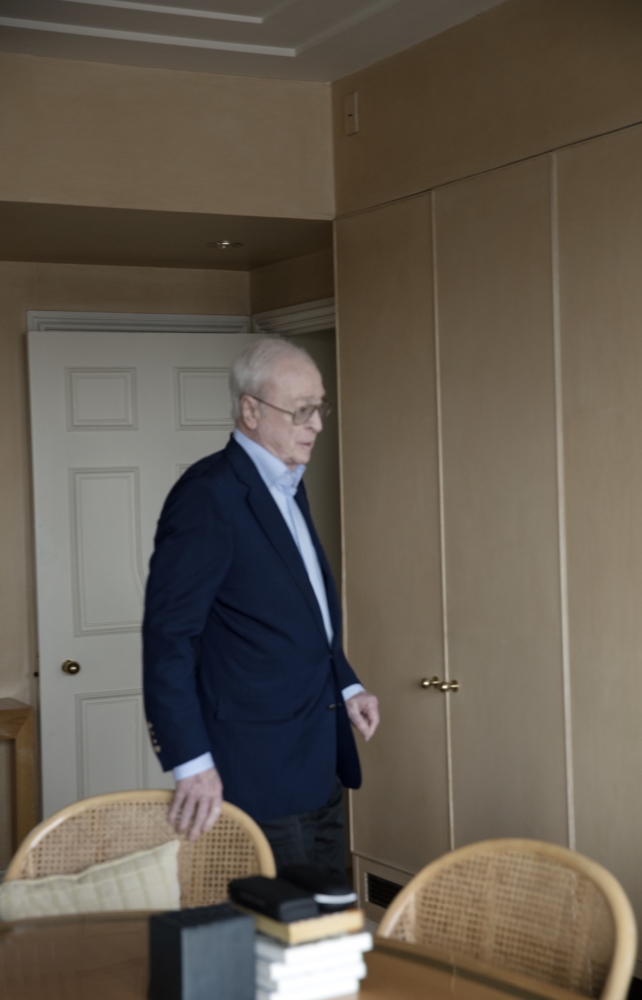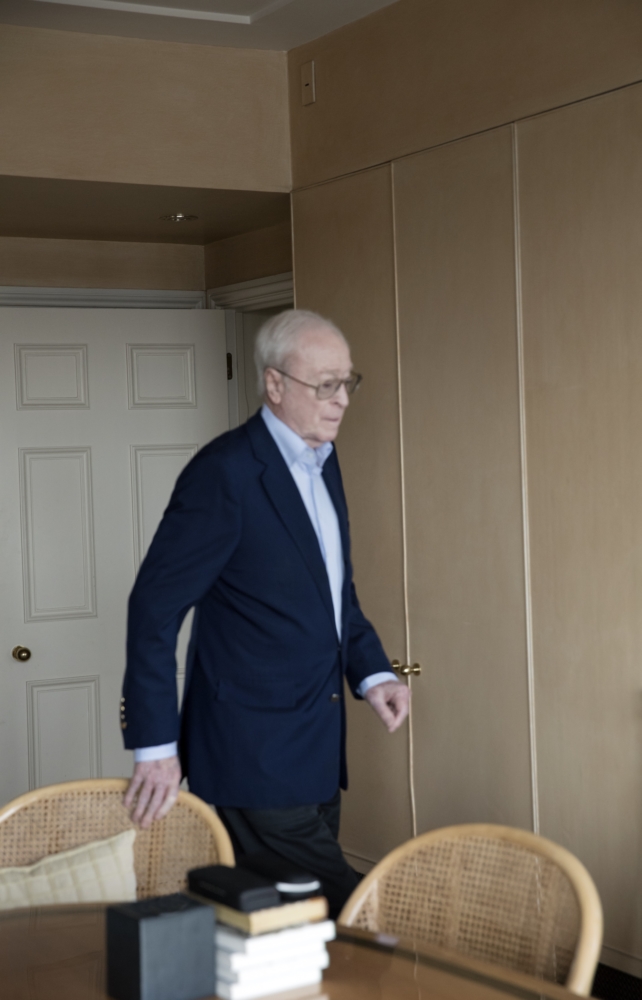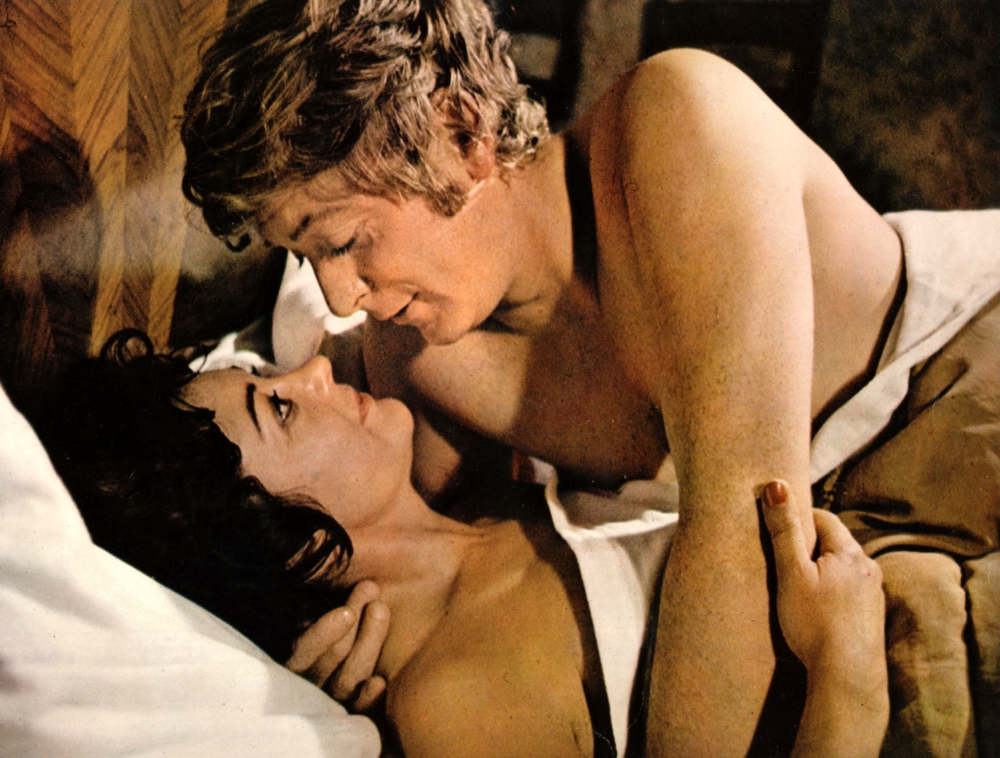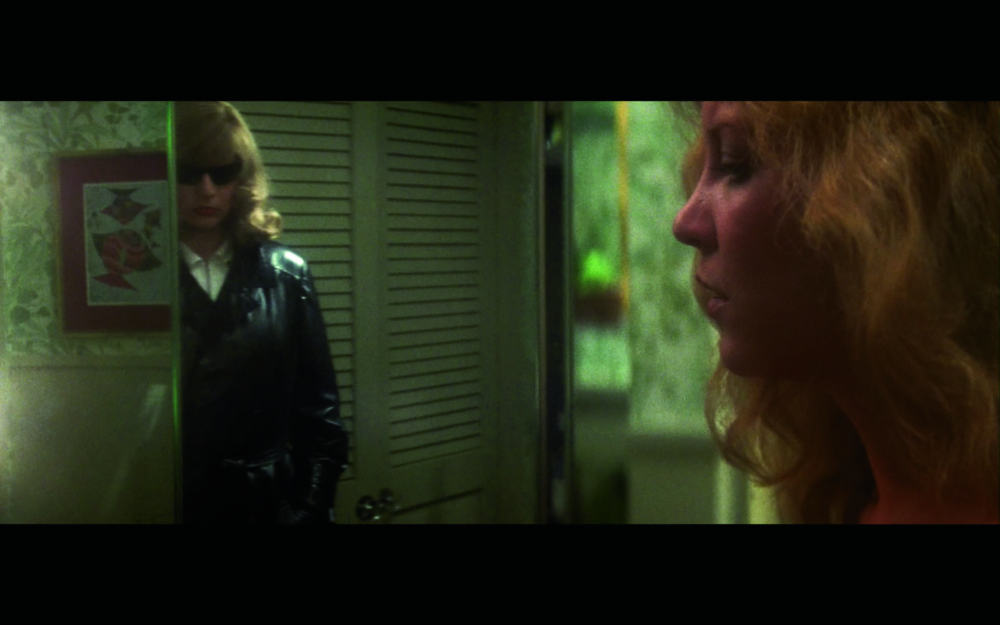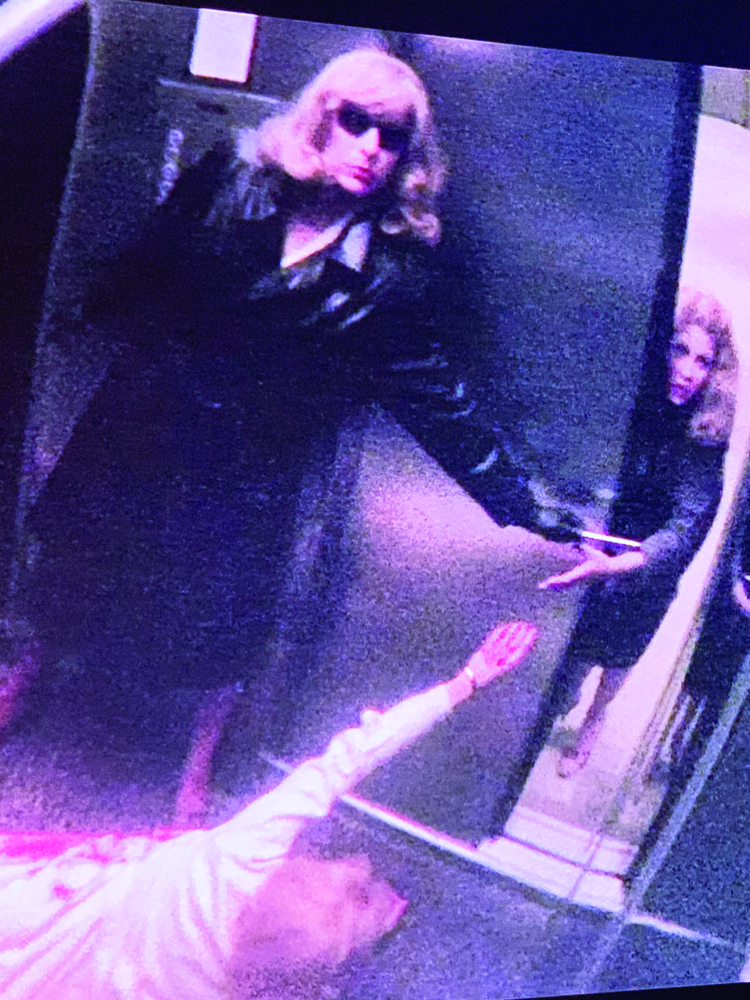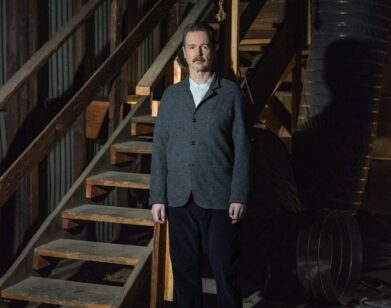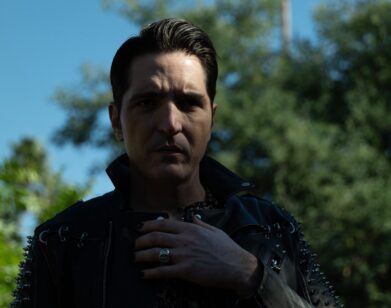Michael Caine Schools Aubrey Plaza on the Art of Being Famous
There is a quote Michael Caine once gave regarding the much-maligned 1987 franchise-ender Jaws: The Revenge, in which he stars as an exuberant island playboy unafraid of wrathful marine life: “I have never seen it, but by all accounts it is terrible. However, I have seen the house that it built, and it is terrific.” Less well-known is the fact that the iconic British actor was in the Caribbean, on the set of the fourth Jaws film, when the news reached him that he’d won his first Academy Award, for playing the hapless, urbane adulterer in Woody Allen’s Hannah and Her Sisters.
Jaws: The Revenge and Hannah and Her Sisters. Every actor—especially one with a career fast approaching 200 roles—has their share of hits and misses. But what separates the 87-year-old legend from even his most illustrious of peers is his unfailing ability to raise the quality and complexity of any part he takes on. Even the occasional misfire flashes with Caine-ian brilliance. In comedy, horror, or drama, in supporting roles or starring leads, in blockbusters or indies, in historic masterpieces or popcorn amusements, Caine consistently manages bold performances of wit, nuance, provocation, and daring. As with the best movie stars, he is impossible to overlook any time he’s on camera. You can’t forget his haunting turn as the psychiatrist in Brian De Palma’s Dressed to Kill (1980) any more than you can skip over his presence as Alfred, the doting patrician butler to Christian Bale’s Bruce Wayne, in Christopher Nolan’s trilogy of Batman films.
Caine has always been a bit of a cad, too smooth not to be up to something devious, too natural not to be hiding a darker motivation—perhaps an aftereffect of his breakout role as an incorrigible pleasure seeker in the 1966 sex-romp Alfie. And yet, for an actor who is such a mesmerizing piece of work, Caine has always been surprisingly good at sharing the screen. Some of his best films involve him in wicked cat-and-mouse games with his co-stars, whether it’s Laurence Olivier in Sleuth (1972), Christopher Reeve in Deathtrap (1982), or Steve Martin in Dirty Rotten Scoundrels (1988). Caine once tried retiring from the movie business, but his strong work ethic—the actor has also written three memoirs—wouldn’t allow it. He has a slew of films on the horizon, including his eighth project with Nolan, this summer’s Tenet; and a bookish comedy called Best Sellers that has him starring as a cranky author opposite Aubrey Plaza—who called him last February to check in on him.
———
MICHAEL CAINE: Hi, darling.
AUBREY PLAZA: Michael! Where have you been all my life?
CAINE: You’re alright, are you? Where are you?
PLAZA: I’m in Pittsburgh for some godawful reason, freezing my ass off.
CAINE: We’re going to do an interview, aren’t we?
PLAZA: I don’t know.
CAINE: Go ahead.
PLAZA: Okay, Michael, first things first. What did you eat for breakfast this morning?
CAINE: Today, I ate blueberries, fat-free yogurt, and porridge. I’m a health freak.
PLAZA: You told me that I have to eat porridge every morning.
CAINE: You’d better do it.
PLAZA: Perhaps I will. So, you’re in another Christopher Nolan film.
CAINE: It was only one day of shooting. I’m his lucky charm, so if there’s no part in the movie for me, he writes one. And he pays me a lot of money.
PLAZA: No one gives me any money. How did you become Christopher Nolan’s lucky charm?
CAINE: He and I have made eight movies together that have taken in over a billion dollars, so now he won’t do a picture without me.
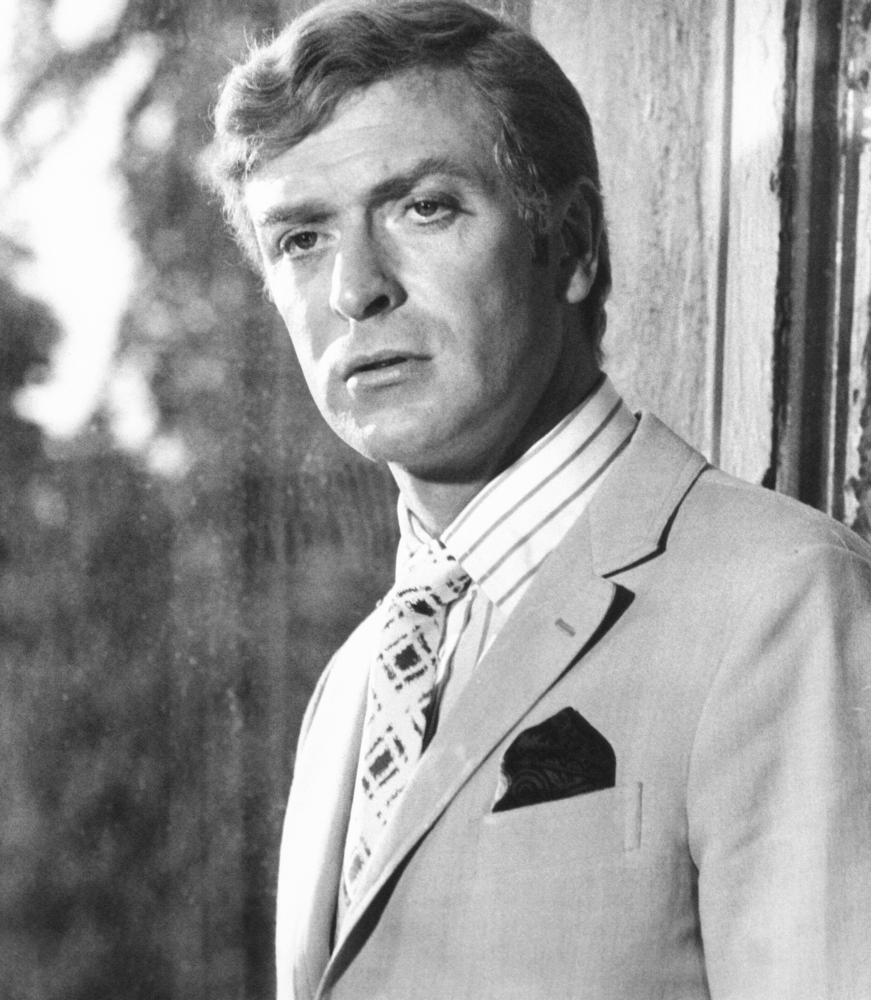
The Italian Job, Michael Caine, 1969
PLAZA: What was the first movie you did with him?
CAINE: Batman Begins. I played the butler.
PLAZA: I remember, and so does everybody else. How did you get that part?
CAINE: I was at my house in the country on a Sunday morning, and the doorbell rang, so I answered it. There was a man standing there with a script in his hand. I thought, “This must be a director.” I said, “What’s your name?” He said, “It’s Christopher Nolan.” I knew his name immediately because he’d made three brilliant movies, but they were small. And I thought, “Oh, this is great. He’s going to ask me to be in one of these small movies and it’ll be fantastic.” And then I said, “Come in,” and I gave him a cup of tea.I said, “Now, what’s the movie?” And he said, “It’s called Batman Begins.” I thought to myself, “I’m too old to play Batman, so I’m probably the butler.” So I said to him, “Am I the butler?” And he said, “Yeah, you’re the butler.”So I said,“What do I say? ‘Dinner is served? Would you like another glass of wine?’” And he said, “Michael, the butler was his foster father. His father died and the butler brought him up, so he’s very important and it’s a very good part. Read the bloody script.”
PLAZA: He’s my neighbor, so maybe if I ring his doorbell I could be in one of his movies, too. How do you have so much energy?
CAINE: I just love working. I really love it. My life is my work, and besides, I get fed up with daytime television.
PLAZA: You mean making it?
CAINE: Watching it. If you sit at home all day doing nothing, you’ll go nuts. But I’ve been very lucky, because in sitting at home and doing nothing, I’ve written five books, which have all been successful. I’m writing a book now.
PLAZA: Am I allowed to ask you about it or is it a secret?
CAINE: I’m writing a thriller. All I can tell you about it is that it’s called…oh, bloody hell, I’ve forgotten.
PLAZA: If You Don’t Want to Die.
CAINE: That’s it! But that’s all I’m going to tell you about it. I’ve never written fiction before. I’ve always written autobiographical books.
PLAZA: Is it harder than writing nonfiction?
CAINE: Oh blimey, yes. Much harder. But it can be a bit more fun because you can do what you like.
PLAZA: Let me ask you some general questions about Hollywood. What do you think about the state of movies?
CAINE: It’s changed tremendously. Hollywood really doesn’t make as many pictures about people anymore, do they? They focus on great big special-effects films and then make a fortune doing them. Everywhere else, like in England, they make pictures about people. In Montreal, you and I did a picture about people. But Hollywood is a construction company for films rather than an idealist sort of company. When you see the stars of these movies, you don’t know who they are.
PLAZA: Because they’re all in masks?
CAINE: No, because they’re all handsome young men and they’re very physical.
PLAZA: Do you still go to the movie theater?
CAINE: No. I have a very good cinema in my house.
PLAZA: Can I come over and watch a movie?
CAINE: You sure can. Also, I’m a member of the Academy, and we’ve just received a hundred movies and DVDs, the best movies of the year. So we can just sit there for days.
PLAZA: Did you go to the theater a lot when you were younger?
CAINE: I never wanted to be a theater actor. I wanted to be a movie actor, because I came from a very working-class background. We went to the cinema, which was cheap. I didn’t see a play until I was 14 or 15. I had already been in a play in the youth club before I went to see one.
PLAZA: What play was that?
CAINE: I went to see Richard Burton in Hamlet. He was very young, and he was at the Old Vic, which is in South London, where I come from. I didn’t want to sit in the cheap seats, but I didn’t have a lot of money, so I saved up and bought a seat in the stalls. I was sitting next to an American movie star called Greer Garson. Many years later, I got to know Richard Burton, and I said to him, “You were the fastest Hamlet ever.” And he said, “You have to remember, Michael, the pub shut at half past ten.”
PLAZA: Did you ever play Hamlet?
CAINE: No, I played Horatio when Christopher Plummer did Hamlet. I got good reviews.
PLAZA: You always get good reviews. What was the first movie you saw that made you want to be an actor?
CAINE: It was Casablanca. I thought it was an incredible story and I loved the acting. And I loved Marlon Brando and Laurence Olivier. I wound up making a movie with Laurence Olivier called Sleuth.
PLAZA: What was it like working with him?
CAINE: Really lovely. We both got nominated for Oscars, though neither of us won.
PLAZA: In 2018, you wrote Blowing the Bloody Doors Off: And Other Lessons in Life. Why did you decide then that it was time to write a memoir?
CAINE: At the age of 62, I got a script and sent it back to the producer saying, “The part is too small,” and he sent it back to me with a letter saying, “I didn’t want you to read for the lover, I wanted you to read for the father.” I suddenly realized that I was 62, I was old, and so I sort of retired. I went to Miami, bought an apartment, opened a restaurant, and I had a wonderful time. I wasn’t going to work again. And then I became great friends with Jack Nicholson, who was also living in Miami at the time. And he talked me into making a movie (Blood and Wine, 1996) and I did it, and it was a success. And then I went on to make all the Batman movies, and it struck me that I wanted to say to people who were my age, “Don’t give up, because there’s more out there.”
I’ve made some fabulous movies since I retired. And there was another moment, when I saw a program on television in England, where this older man was asking young students who were leaving school what they wanted to do with their lives. Three of them said they wanted to be famous, and he said, “How would you want to be famous?” They said, “We don’t know, and we don’t care. We just want to be famous.” That struck me as strange. So I wrote the book for two reasons. The message of the first half, to younger people, was that you should do what you want without ever thinking of becoming rich or famous. Just do it and be as good at it as you possibly can. And maybe one day you will be rich and famous, but you shouldn’t do it to be rich and famous. And the other part of it is, don’t give up too early. Just keep going. I’m going to be 87 next month and I’m still waiting for the phone to ring and for someone to say, “Here’s a movie.”
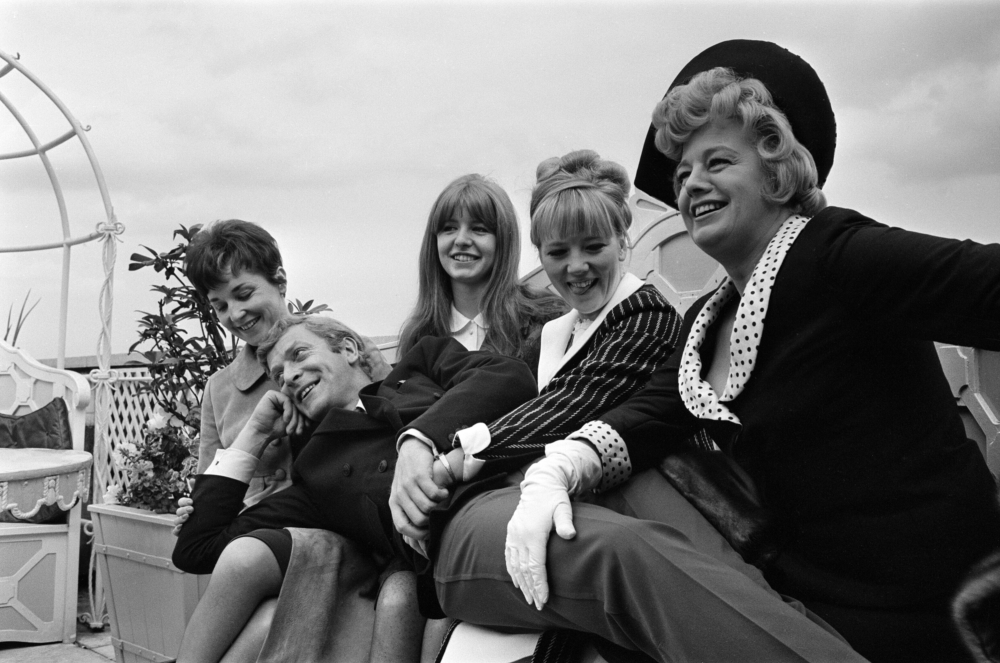
The stars of the film Alfie, Vivien Merchant, Jane Asher, Julia Foster and Shelley Winters with Michael Caine laying across them. 4th July 1965. Mirrorpix/Courtesy Everett Collection
PLAZA: You never cared about being famous.
CAINE: It just happened to me. I don’t use it at all. I’m not one of those conceited actors who goes on about being famous. But I know I am, because people I’ve never met keep stopping me in the street and asking me for a selfie.
PLAZA: Can you walk down the street in London without getting bothered, or do they bother you?
CAINE: Oh, no, I can’t walk down the street.
PLAZA: Really?
CAINE: But if I wear a baseball cap and dark glasses, nobody recognizes me. I’m always dressed in very dark, scruffy clothing. You’d never say, “Look at that man’s coat or trousers or shoes.” You’d go, “Where the bloody hell did he get those things from?”
PLAZA: You won your fist Academy Award for Hannah and Her Sisters. How was that?
CAINE: I didn’t go because I was filming a movie. I had already said I’d do the movie, and then I got nominated, so I couldn’t say, “I’m not doing the movie. I’m nominated for an Oscar.” So I had to go ahead with it.
PLAZA: Where were you?
CAINE: The Caribbean. I was in a hotel room on my own.
PLAZA: How did you find out that you’d won?
CAINE: My wife called me. I was trying to watch it on the television, but it didn’t work at the hotel I was in. I was all on my own in this room, and she said, “You won the Academy Award.” And I thought, “Oh my god.”
PLAZA: What did you do?
CAINE: I just said, “Will you thank everyone for me?” And she did. Someone accepted the award for me, I don’t remember who. But for the second win (for The Cider House Rules, 1999), I was there.
PLAZA: How was that?
CAINE: Fabulous. I had a great time.
PLAZA: You weren’t nervous going onstage and making a speech?
CAINE: Nope. I’m only nervous when I’m getting paid. And I had friends in the audience. That was the one time that Tom Cruise got nominated for Best Supporting Actor, not leading.
PLAZA: You beat out Tom Cruise?
CAINE: Yeah. I had a long conversation with Tom about not being up for a leading actor and being up for supporting actor. It was kind of funny.
PLAZA: When you were growing up, did you care about awards?
CAINE: No, but I was a movie buff. I lived in the cinema.
PLAZA: What other things did you do?
CAINE: Nothing. I can’t do anything other than act.
PLAZA: What are you doing next?
CAINE: I don’t know. I’ll write my book until something comes along. I’m always available. If you do a movie, get me a part in it.
PLAZA: Have you ever directed anything?
CAINE: No. I just want to do my job and go home as early as possible.
PLAZA: Is it true that Lina Roessler, who directed our movie, was the first female director you ever worked with?
CAINE: I’ve worked with a few others. I did a picture with Nora Ephron.
PLAZA: Who are your favorite directors?
CAINE: I worked with John Huston on The Man Who Would Be King and Joe Mankiewicz on Sleuth, both of whom were great.
PLAZA: John Huston is so cool. I can’t believe you got to work with him.
CAINE: I’d been working for about a week, and he’d never said all that much to me, and I said to him, “John, you never give me any directions.” And he said, “You get paid a great deal of money to do this, Michael. You don’t need me to tell you what to do.”
PLAZA: He must have loved actors.
CAINE: He did give me one direction. I had a very long speech, and I thought I was doing great, and right in the middle of it, he said, “Cut.”And I said,“What are you cutting for, John?” And he said, “You could speak faster, Michael. He’s an honest man. Only villains speak slowly.” I think that’s absolutely true. Honest men speak faster than dishonest ones. There’s a lesson in life for you.
PLAZA: I’ll try to talk faster in my everyday life. I’m a slow talker.
CAINE: I’ve always been very suspicious of you.
PLAZA: You and everyone else.

